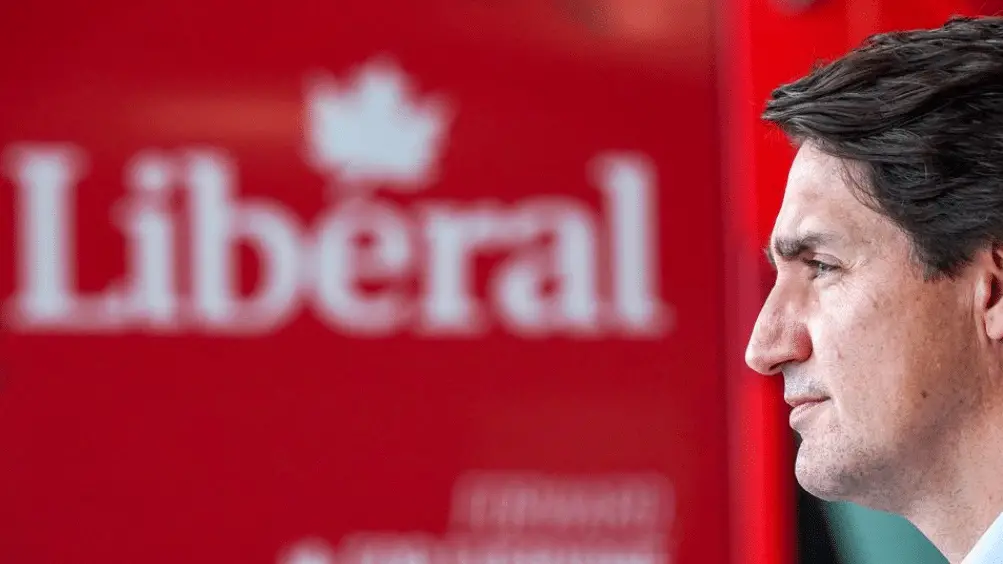Justin Trudeau’s Liberal Party’s popularity has plummeted to record lows in recent polls. Scandals and his carbon tax weakened Trudeau’s support after years of support. Many election Analysts belive Justin Trudeau and his Liberals will not survive the next election.
The newest Angus Reid survey shows the Conservatives leading nationwide, with Trudeau and his Liberals losing support in most provinces, especially Ontario and Quebec. Analysts say Trudeau’s leadership fatigue, unhappiness over inflation, ridiculous carbon tax, and continual policy flip-flopping are driving voters away.
Trudeau’s carbon tax is unpopular across Canada. Many Canadians hate its higher prices for homes and businesses.
Critics say it unfairly targets energy, threatening jobs and prosperity. Skeptics believe the tax fails to solve global climate challenges despite claims it will reduce emissions.
Provincial governments like Alberta passionately oppose federal intrusion. The carbon tax still divides society.
Steven Guilbeault, Trudeau’s Environment and Climate Change Minister, has lost support from neutral public and provincial governments and the powerful climate action lobby.
Don Braid of the Calgary Herald says Chickens with their heads cut off run around in circles. In politics, the federal Liberals are starting to exhibit this postmortem behaviour.
Environment and Climate Change Minister Steven Guilbeault, the core cabinet fowl who said no new roads should be built in Canada, continues to press his climate extremism.
“The result is political fiasco.”
Alberta and Saskatchewan have always been bitterly opposed to many measures. But Guilbeault is now losing support from the public, provincial governments that once were at least neutral and, crucially, the powerful climate action lobby.
The disasters are self-inflicted. Trudeau and Guilbeault stuck to the carbon tax even after the policy’s disastrous deflation by the “carve out” for home heating oil, a benefit mainly to Atlantic Canada.
Their faux-tough response — nobody else gets that, dammit! — actually cost farmers a break that had been planned, but suddenly looked like another exemption.
The carbon tax, revealed as a purely political tool, is ripe for axing by a potential new leader like Mark Carney. Even New Democrats have argued that the tax should exit, stage left.
Now, Guilbeault has introduced amendments to the Impact Assessment Act, allegedly bringing it into line with the Supreme Court ruling that found the law seriously intrudes on powers rightly belonging to the provinces.
Trudeau’s power grabs shot down
Guilbeault has never acknowledged this was a defeat. He treats the ruling as a simple policy problem rather than a 5-2 thumping by judges not usually known for hostility to federal power grabs.
Alberta was predictably furious about the amendments. Premier Danielle Smith always said Guilbeault would make a gesture and proceed as usual, forcing yet another court challenge.
“When you look at the unconstitutionality of the first draft, you can’t just make tweaks and bring this in line with the Constitution,” says Rebecca Schulz, Alberta’s minister for environment and protected areas.
“That’s really the issue here. Minister Guilbeault still has the ability to involve himself in projects that are within provincial jurisdiction.
“In the end, this piece of legislation remains unconstitutional. We are going to be taking this back to court and I’m confident in our position, because their changes don’t actually address the issues that we’ve raised.”
Trudeau’s middle ground game not working
The Impact Assessment Agency, the powerful regulatory body that oversees all this, said in a statement: “No decisions to designate projects will be taken. Consideration of any new designation requests will only resume, as appropriate, once amended legislation is in force.”
Most striking is the fury from the climate action lobby toward Guilbeault’s amendments.
“Overall, the bill is a complete federal abdication to address proposed high-carbon projects such as in situ oil mines,” Steven Hazell, a retired environment lawyer and federal regulator told the National Observer, Canada’s best chronicler of climate stories and policy.
Green party Leader Elizabeth May said the government was “erring on the side of stupidity.” May sees the court decision as an opportunity to go further with legislation, not retreat to meet demands of provincial jurisdiction.









